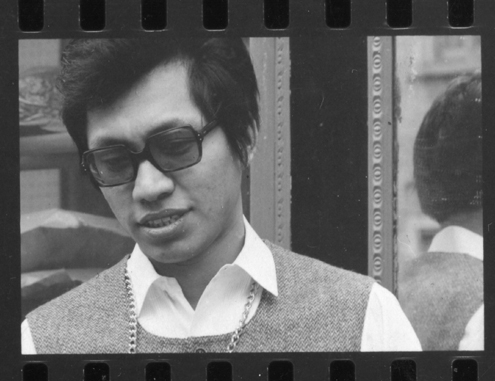
In a recent heart to heart I had with Wounded Lion singer/guitarist Brad Eberhard, he mentioned that Scott Soriano, curator and owner of the ever alluring Sacramento imprint S-S Records, said Wounded Lion sounds like they’re from Columbus, Ohio. As a Columbus expatriate and avid follower its musical past and present, I’d say Soriano’s ears are perceptive. Wounded Lion’s brand of charmingly timeless, lo-fi pop would fit nicely on a bill with Columbus bands like the Guinea Worms and Times New Viking. But, I would take Soriano’s assessment a step further. Wounded Lion don’t just sound like they’re from Columbus, the band embodies the city’s marvelously ass-backwards musical ideology, rejecting conventionally accepted aesthetics and approaches to revel in an ecstatic indifference toward time, place, trend, and fashion.
Columbus, and to a lesser extent smaller regional cities like Dayton and Youngstown, have been producing their own brand of insular, uncompromisingly lo-fi rock for over three decades to a small but growing number of people outside the 614 area code. In certain respects, Columbus and Los Angeles represent two opposing urban polarities, each functioning to reaffirm and stabilize the other’s differences. Columbus is a test city for Hollywood projects. On a systemic level, much of Hollywood’s most unfortunate work acts as a direct or indirect pacifier for the kind of Americans marketing think tanks associate with the population of Columbus and its surrounding area. Hypothetically, Hollywood prospers on Middle America’s escape. Whether or not the figures associated with Columbus’s population have any merit, the stigmas surrounding the town, its isolation and expansive urban sprawl do a number on the minds of its creative population. Living in Columbus, it’s easy to feel despondent. Many of the best records produced in the city deal with the feeling directly through lyrics and reactionary aesthetic choices, operating as big, black, work-worn middle fingers to banality, boredom, fear, rejection, and conventional expectations, musical and otherwise.
Wounded Lion, like their Columbus brethren, is inspired by the space the band inhabits. For those abroad, LA is less a place than a destination – a space people dream of and aspire towards. Its image is shaped through depictions, lore, and the fantasies it has provoked from each generation. There is, undeniably, a grain of truth to the assumption that LA is filled with anxious people pounding the pavement, chasing dreams, hopes, and aspirations - trying to patch the proverbial void. The city has its neuroses, but the vanity, superficiality, and image concerns are a product of one demographic’s desire to experience the fantasy, to make it tangible through empty façade. The façade weighs heavy on the city’s consciousness. We drive ridiculous cars, get plastic surgery, and accumulate insurmountable debts. We meltdown, burnout, and pick up the pieces. Amidst paradise. Thankfully, we have Wounded Lion to show us how to have fun again, despite it all.
Wounded Lion’s formula is relatively simple. The band writes shambling, alternately silly and poignant songs that bend and twist timeless pop hooks from the sixties onward. On their debut S-S 7 inch, Eberhard’s lyrics concern pony people and a girl named Carol Cloud. They’re funny on their own, but Eberhard sells them with his languid approach and straight-faced honesty. When it works, and it usually does, it feels as though Eberhard is gloriously unaware of the separation between the real world and his fantasy world, a place where troubles are coupled with and defused by raw imagination. We know he’s goofing, but it doesn’t matter. The band has pulled us in; we’re helpless. Live, Wounded Lion bring a small piece of their fantasy world as an offering the audience can take or leave - a short time with the band when nothing has to matter. The band plays and dances hard, in a fit of energy and jubilation - oblivious to personal concerns and anxieties. I like to imagine the band practicing or playing to no one with the same kind of energy; it honestly wouldn’t surprise me. In Wounded Lion’s world, people trade instruments, tune each others guitars and everyone gets a chance to sing lead – a truly democracy not unlike Dr. Hook and his medicine show, but without the cocktail of drink and drugs. In Wounded Lion’s world, no one looks stupid dancing or has a bad hair day. No one is afraid. The world is a party and everyone is invited.
Like the bands of Columbus, Ohio, Wounded Lion escape the everyday by refusing to accept it, refusing to be burdened by trends, trivialities, and contrivances. They create a space where postures are null. However, unlike the musicians of Columbus, Wounded Lion isn’t burden by Midwestern hopelessness. The band’s message is never sardonic, cynical, or hard to swallow. In times this heady, self aware, and neurotic, we need bands like Wounded Lion to remind us that, in the grand scheme of things, a lot of this shit we obsess over doesn’t matter. Regardless of pretense, two things that get us out of bed every morning are catharsis and personal connection, both of which Wounded Lion offer generously.



